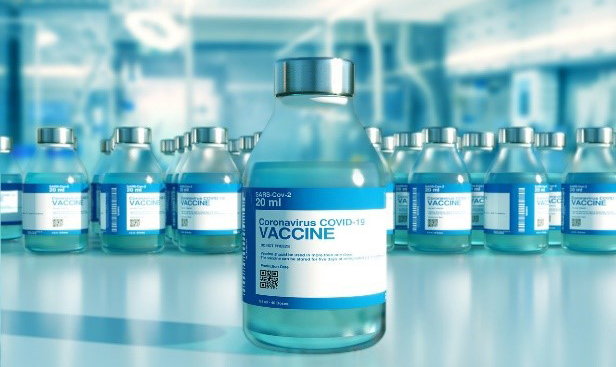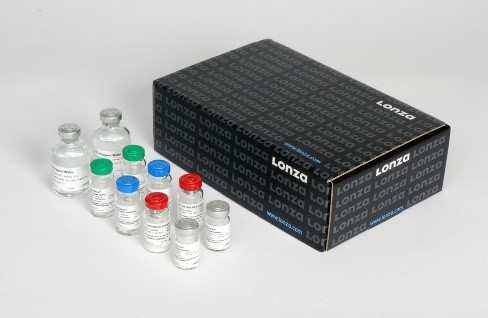 Team AstraZeneca or Team Biontech Pfizer? On social media, many happily vaccinated people are showing off their vaccination status and proudly displaying the vaccine they received. And the pictures are representative of the debate about whether mRNA or vector vaccines are better. Two vaccines of each are now approved in the EU: following early starters Biontech Pfizer and Moderna, which developed mRNA vaccines, AstraZeneca and Johnson & Johnson received EU-wide approval with vector vaccines. In what follows, we take a sober view on the vaccination debate.
Team AstraZeneca or Team Biontech Pfizer? On social media, many happily vaccinated people are showing off their vaccination status and proudly displaying the vaccine they received. And the pictures are representative of the debate about whether mRNA or vector vaccines are better. Two vaccines of each are now approved in the EU: following early starters Biontech Pfizer and Moderna, which developed mRNA vaccines, AstraZeneca and Johnson & Johnson received EU-wide approval with vector vaccines. In what follows, we take a sober view on the vaccination debate.
Both mRNA and vector vaccines are relatively new developments. However, while vector vaccines are already in use for i.e., Ebola, HPV and other diseases, the mRNA vaccines from Biontech Pfizer and Moderna were the first to be submitted and approved. The principle is very similar for both systems. In both, an antigen is not administered, as is usually the case with vaccines, but only a blueprint for an antigen. The cells of the vaccinated person build the antigen themselves. And both are based on a so-called platform technology. This means that the way of creating the blueprint remains the same and only the blueprint itself is changed. This has the advantage that new vaccines can be developed much faster. But what are the differences?
mRNA-Vaccines
mRNA vaccines contain viral genes in the form of nucleic acids that contain the information for the desired antigen. In the case of the Covid-19 vaccines, the body is able to replicate the so-called spike protein of the coronavirus. This helps to build the immunity to fend off future coronavirus infections. The advantage of mRNA vaccines is that neither an isolation of the virus nor cell cultures is needed for the development. The only information needed is the genetic information. This eliminates the risk of contaminations. A disadvantage of these vaccines is the sensitivity of the blueprint requiring the vaccine to be stored under extremely cold conditions and to be used within a limited timeframe.
Vector Vaccines
Vector vaccines use a carrier virus that is genetically engineered to be harmless, unable to replicate, and to carry the desired gene code for the antigen. In the case of coronavirus vaccines, this is usually an adenovirus, which serves as the basis for the blueprint. Adenoviruses are viruses that cause e.g., colds, but also other infections. The advantage of vector vaccines is that they are much less sensitive and can be stored at normal refrigerator temperatures.
ADVANTAGES AND DISADVANTAGES – A DISPUTE OF SCIENCE
Many are asking the big question: which of the systems is better and safer? While the answer may not be clear, scientists and policy makers agree on one thing: vaccinated is better than not vaccinated. The benefits of vaccination far outweigh the risk of side effects. This is the conclusion reached by both the European regulatory authority and the national vaccination committees in the EU. However, any vaccine can cause reactions, and vaccine reactions such as fever, aching limbs and headaches have been observed, especially in younger people. For vector vaccines these side effects can occur especially after the first vaccination, for mRNA vaccines they are rarer and more likely after the second vaccination. Here is a collection of links with more detailed information about the differences between the vaccines:
Vektor-Impfstoff Wird Adenovirus-DNA ins Genom eingebaut? - Spektrum der Wissenschaft
Corona-Impfungen im Vergleich - netdoktor.at
And what does Sczabo-Scandic have to do with vaccines?
 As a supplier for research and medicine, Szabo-Scandic on the one hand offers the required endotoxin tests for vaccines that detect possible contaminations, and on the other we also supply proteins, antigens und antibodies that are used for the development of vaccines. In addition, we offer both SARS-CoV-2 Antigen, PCR- und Antibody tests. We are proud to be able to contribute to the fight against the coronavirus pandemic with our know-how.
As a supplier for research and medicine, Szabo-Scandic on the one hand offers the required endotoxin tests for vaccines that detect possible contaminations, and on the other we also supply proteins, antigens und antibodies that are used for the development of vaccines. In addition, we offer both SARS-CoV-2 Antigen, PCR- und Antibody tests. We are proud to be able to contribute to the fight against the coronavirus pandemic with our know-how.

 Deutsch
Deutsch